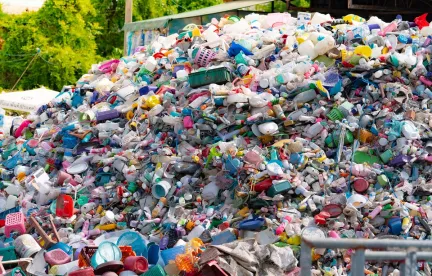The UK’s Plastic Packaging Tax (PPT) was introduced in April 2022. It was initially set at £200 per tonne (£210.82 since April 2023) and applies to importers and manufacturers of plastic packaging with less than 30% recycled content. HM Revenue & Customs (HMRC) has been seeking to raise more awareness of PPT and has indicated that the “soft landing” first year of the new tax has ended, and enforcement should now be expected for non-compliance.
Initial reports indicated that registrations for the self-assessment tax have been significantly lower than anticipated. Nonetheless, PPT still looks set to generate revenue of around HMRC’s estimated £235 million in the first year (potentially slightly more in fact). This suggests that more companies are choosing to, or having to, pay PPT rather than meet the 30% recycled content threshold, and may indicate issues around availability of recycled content.
HMRC recently announced a package of measures intended to simplify the tax system, and to make a key reform to the PPT to encourage investment in chemical recycling.
Under current PPT rules, recycled content must be calculated on the basis of the actual content of each piece of packaging. This favours mechanical recycling methods, because recycled plastic pellets can be melted and extruded with virgin plastic pellets, in a way that allows the composition of the final product to be known (e.g. 50% recycled pellets and 50% virgin pellets, so the final material is known to contain 50% recycled content). Chemical recycling takes waste plastics back to the molecular level, and this feedstock is used like virgin hydrocarbons to then create new plastic material. Unlike mechanically recycled plastic, it is not always straightforward to identify recycled “molecules” in the finished product. However, this can be calculated using what is known as a “mass balance” approach, a chain-of-custody-type assessment looking at the amount of recycled versus virgin feedstock that went into the initial production process, and tracing movement through the supply chain.
This is a positive message for the chemical recycling industry, although the technology does not garner universal support. Opponents of the technology highlight the intensive energy use involved, and in the EU we have seen campaigning against the inclusion of chemical recycling from recycled content targets. Supporters consider this technology essential to tackle plastics that are harder to recycle, such as flexibles and black plastics
HMRC has said that it will issue a formal consultation later this year on including the mass balance approach in the accepted methodology for PPT.




 />i
/>i

